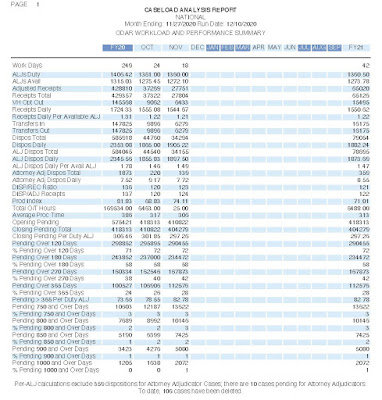In
U.S. v. Vaello-Madero the First Circuit Court of Appeals held that it is unconstitutional to deny SSI benefits
to U.S. citizens who reside in U.S. territories such as Puerto Rico. The United States Solicitor General petitioned the Supreme Court for a writ of certiorari to review that decision. That means they are asking that the Supreme Court hear the case.
All the briefs concerning the petition have been filed. The Court generally makes decisions on whether to grant cert at weekly conferences, usually held on Fridays. The Vaello-Madero cert petition was distributed for consideration during the Court's conference on December 11. The Court could have granted or denied cert at that conference but it didn't. It could have relisted the cert petition for consideration at a future conference, which is common, but it didn't. They took no action, effectively putting the case on hold which is less common.
Amy Howe, writing for SCOTUSblog, which is THE website for Supreme Court news, tells us that the most common reasons for putting a cert petition on hold are because the Court is already considering a similar case or because the Court is waiting for another cert petition presenting a similar question. Neither of these is the case here, unless the Supreme Court is waiting on the Ninth Circuit Court of Appeals to act on a similar case concerning SSI benefits for Guam residents but, as far as I know, that case hasn't been scheduled for oral arguments yet. A decision could be many months off.
What else could be going on here? I'm no Supreme Court expert but I've read some of the briefs. The briefs supporting SSI for U.S. territories expressed concern that there would be a summary disposition of the case, that is that the Court would summarily reverse the First Circuit without oral arguments, which it can do. The Court may have already decided to do that but has not yet announced anything because a decision and possible dissents are being prepared but that's just my speculation.
Update: Vaello-Madero is an oddball case. The government has been seeking to recover an overpayment that occurred when the claimant moved to Puerto Rico but continued to receive SSI. Arguably, the case should have been resolved on a procedural issue, whether Vaello-Martinez should have contested the overpayment administratively. There's a class action seeking directly to order the government to pay SSI benefits to Puerto Rico residents. That's now pending in the Court of Appeals. The plaintiffs in that case filed an amicus brief in the Supreme Court asking that the Court hold off on the Vaello-Madero cert petition pending a decision in the Court of Appeals in their case, Peña Martínez v. U.S. Dep’t of Health & Human Servs which presents the issue more directly. The Peña Martínez case also involves other government benefits. Maybe the Court wants to wait for Peña Martínez and the Guam case. That could put Vaello-Madero on hold past the end of June or early July, when this term of Court ends. It also allows the Biden Administration plenty of time to express its own position on the matter.





















